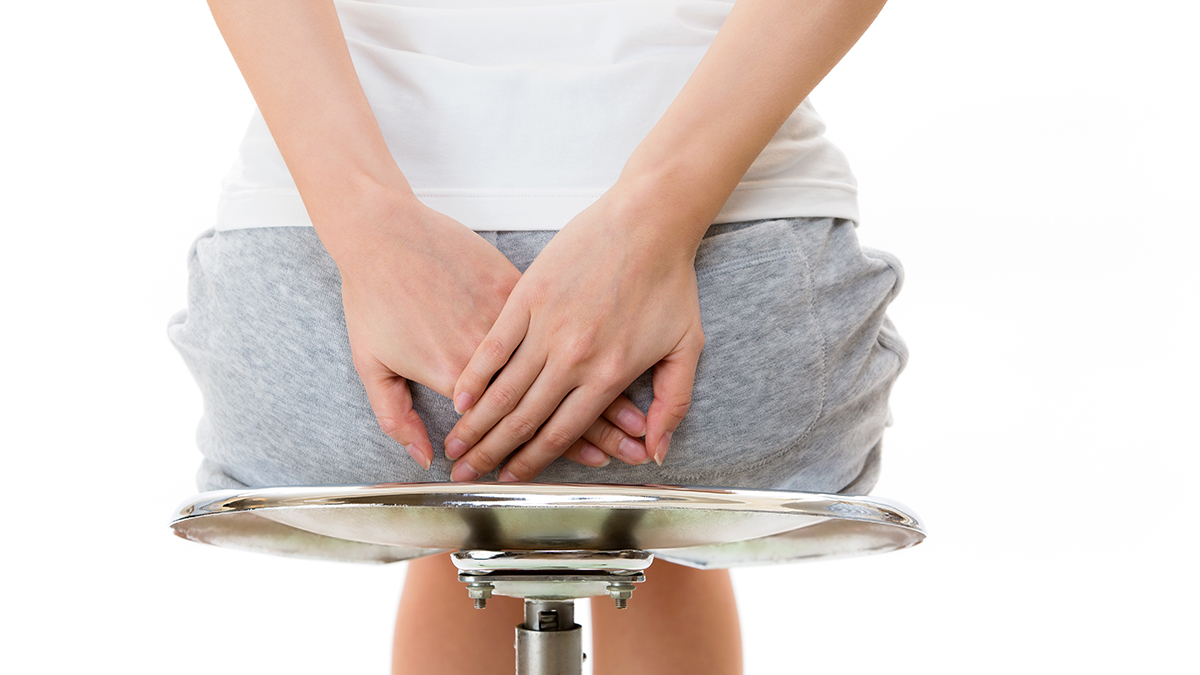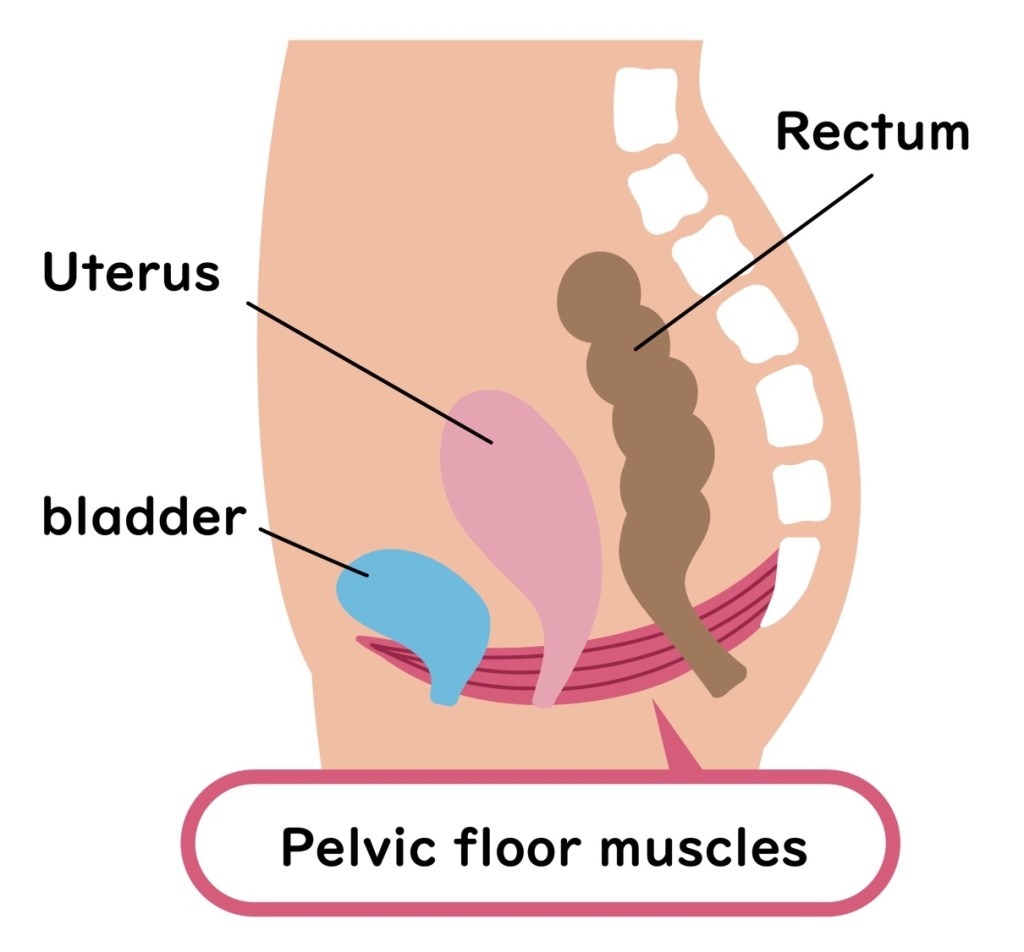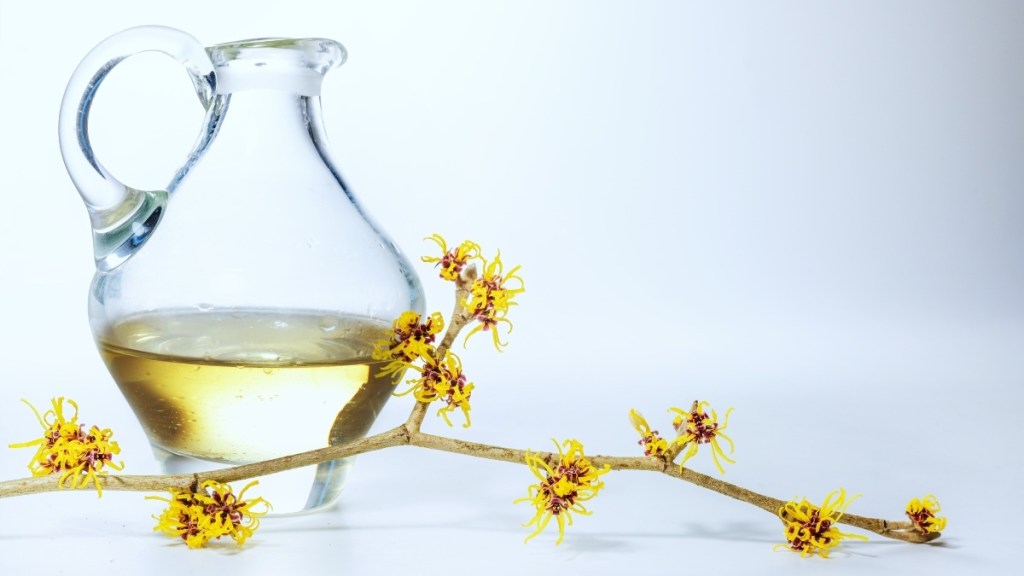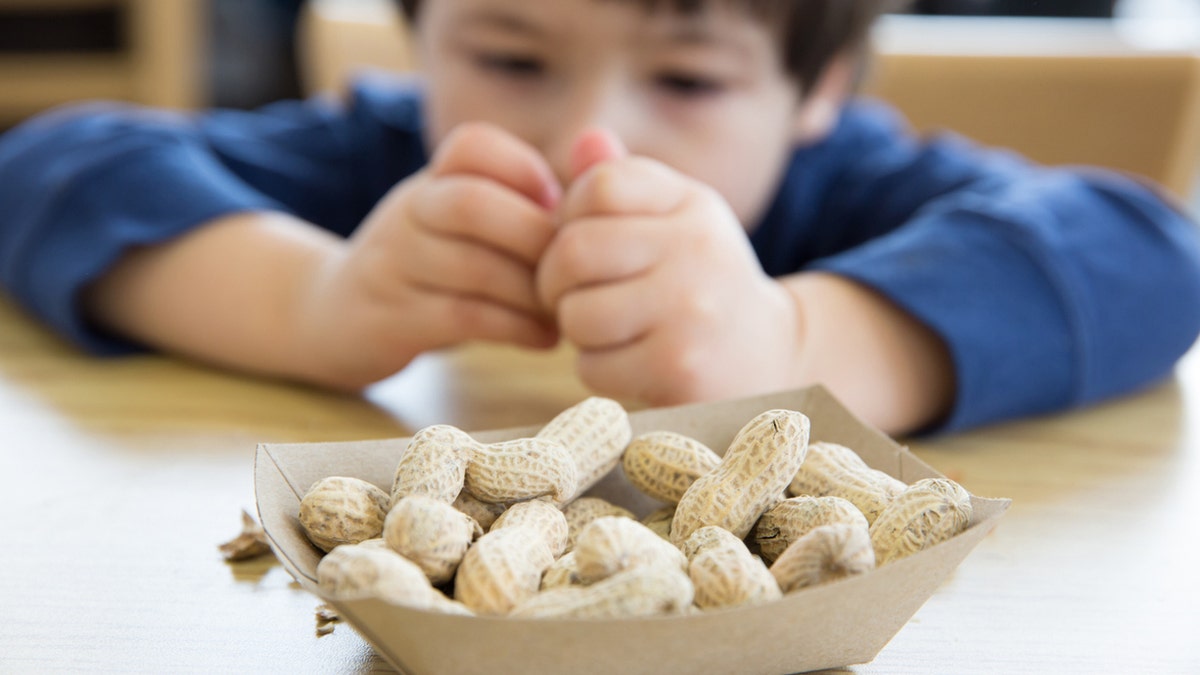Health
MDs Reveal the Home Cures That Soothe Hemorrhoid Itch & Discomfort In Minutes

If you’ve ever had a hemorrhoid flare-up, you know that it can be hard to think of anything other than the intense discomfort that comes with it. One of the most common symptoms of hemorrhoids, along with irritation, bleeding, and soreness is itching. And while the itching is uncomfortable during the day, it can feel even more intense at night. Here, top experts weigh in on why hemorrhoids itch at night — and the simple home cures that work even better than some over-the-counter creams.
What are hemorrhoids?
“Hemorrhoids are a natural part of our body,” says Lynn M. O’Connor, MD, a colorectal surgeon and chief of colorectal surgery at both Mercy Hospital and St. Joseph Hospital in New York. “They’re vascular cushions in our anus and everyone has them.” These anal cushions, aka hemorrhoids or piles, are made up of connective tissue, blood vessels, and a small amount of muscle. Hemorrhoids actually serve an important purpose by helping to shield the skin around the anus from passing stool.
“Normal hemorrhoidal tissue is there to maintain continence. It keeps the rectum closed so that stool doesn’t leak out,” explains gastroenterologist Eric Dinesh Shah, MD, a clinical associate professor of medicine at the University of Michigan in Ann Arbor and a spokesperson for the American Gastroenterological Association.
But problems occur when excess pressure is put on these cushions. This can make the veins and blood vessels in your lower rectum or around your anus painfully swollen and inflamed — what most of us consider “hemorrhoids”. It’s not uncommon. According to the National Institute of Diabetes and Digestive and Kidney Diseases, hemorrhoid flares affect 1 in 20 Americans. And the the issue worsens with age, impacting about half of people over 50.
The two main types of hemorrhoids
There are two types of hemorrhoids: internal, which form in the lining of your anus and lower rectum, and external, which form under the skin around the anus. External hemorrhoids are the more uncomfortable of the two because they’re outside of the anus. There, they can rub against clothing or play host to mucus or stool particles, which can cause irritation and itching.
Internal hemorrhoids tend to be painless, though they can bleed. You’ll likely notice blood on toilet paper or in the toilet after using the bathroom. But if you see blood after wiping or in your stool for a prolonged period of time, it’s time to schedule a visit with your doctor. “With bleeding we can’t always assume it’s hemorrhoids,” Dr. Shah says. “It could be sign of something else, such as inflammatory bowel disease, ulcers, or possibly a sign of cancer. It can be hard to tell without an evaluation, including a colonoscopy, to take a look as to what’s really going on.”
What causes hemorrhoids?
Some of the more common causes of hemorrhoid flare ups include overexerting yourself when having a bowel movement (such as passing too-hard stool or straining due to constipation), lifting heavy things, prolonged sitting (especially on the toilet), pregnancy and being overweight. This puts pressure on your hemorrhoidal tissue, weakening and stretching the veins there.
An under-the-radar trigger? Pelvic floor dysfunction, says Dr. Shah. Your pelvic floor consists of the muscles and the connective tissue that support organs in your pelvis including your bladder, bowel, and reproductive organs. “Pelvic floor dysfunction is caused by poor coordination or weakness of the pelvic floor when straining, which in turn is a common cause of hemorrhoids,” he explains. The condition affects approximately 25% of women in the US. (Click through to see the telltale signs a pelvic floor problem,)

Who is most at risk for hemorrhoids?
More people over 50 experience hemorrhoids because as we age, the connective tissue between the anus and rectum gets weaker, explains Dr. Shah. “Increased pressure, especially if you’re straining to have a bowel movement, can make it easier for an external hemorrhoid to break through.”
What’s more, “older adults are more likely to experience constipation from lack of adequate physical activity, a low-fiber diet or taking certain medications, such as those for high blood pressure and depression,” Dr. Shah explains.
You may also have your family to thank for your hemorrhoids. When researchers reporting in the journal Gut examined cells of nearly one million people, they identified genes in 102 regions of the human genome that increase the risk of hemorrhoids. And the American Academy of Family Physicians says people whose parents had hemorrhoids may be more likely to have the painful, itchy condition, too.
Why do hemorrhoids itch at night?
Let’s start with why hemorrhoids itch in the first place. “If hemorrhoids are inflamed, that can cause itchiness,” says Dr. O’Connor. “You also can experience itchiness from the friction of the toilet paper if you’re wiping excessively. And if hemorrhoids are swollen and hang down, they can rub against clothing.”
When it comes to nighttime itchiness, Dr. O’Connor says one reason it may feel worse is because you’re more fixated on it. “You might be more aware because there’s nothing to distract you from the itching,” she says. “During the day, you’re doing what you need to do and dealing with other things so you might not have time to focus on it that much.”
And while you’re sleeping, you may be unaware you’re scratching the area. That’s a problem, since scratching inflamed hemorrhoids can potentially make the problem worse. “Scratching can cause an itching and scratching cycle that doesn’t stop,” says Dr. Shah, increasing inflammation.
The best ways to soothe hemorrhoid itching
Whether itching and irritation strikes at night or flares up during the day, these simple, natural home remedies can quickly quell symptoms.
Dab on witch hazel
When symptoms flare, pat the problem area with a cotton ball dampened with witch hazel. This natural astringent has been a folk cure for hundreds of years to relieve itching, and research now proves it really is one of the best ways to calm symptoms in seconds. That’s because witch hazel brims with tannic acid. And research in ACS Applied Materials and Interfaces found this compound shrinks swelling on contact and dulls inflamed nerve endings that telegraph pain. (Click through to our sister site to see 8 surprising uses for witch hazel.) Need relief on the go? Reach for a pre-moistened, witch hazel-infused pad. One to try: Tucks Medicated Cooling Pads (Buy from Walmart.com, $7.68)

Relax with a warm sitz soak
A sitz bath, a shallow soak where water only covers your hips and bottom, can provide powerful relief from hemorrhoids. Research in the Women and Birth finds that taking a five-minute break three times a day to soak the affected area in warm, Epsom-infused water relieves pain and itching even better than topicals like Preparation H and Anusol. Not only does the warmth boost circulation to speed healing but the magnesium in Epsom salts also extinguishes pain-triggering inflammation. Tip: Try an Epsom salt blend formulated just for sitz baths. They’re dosed with anti-inflammatory ingredients like aloe, lavender and calendula. One to try: Lansinoh Sitz Bath Salts (Buy from Amazon.com, $12.03)
Tip: When washing and drying the anal area, be extra gentle. “Skin can break down if you’re washing too aggressively,” cautions Dr. O’Connor, which can worsen irritation. You also want to pat the area dry with a soft cloth instead of rubbing in a “flossing” motion. Or you can use a hair dryer on a low cool or warm setting, Dr. O’Connor adds.
Try a citrus plant extract
Taking a potent citrus plant flavonoid called diosmin daily slashes hemorrhoid symptoms up to 67%, according to a review of 10 studies in the British Journal of Surgery. What’s more, it cuts your chances of a future flare up by 50% when taken daily. Diosimin improves blood flow, helping to constrict and heal the overly dilated blood vessels responsible for pain and swelling. Best of all, it begins working in as little as four days.
The best ways to ward off future flare-ups
After experiencing the pain and discomfort of a hemorrhoid flare, odds are you’ll want to do whatever you can to block a future one. Here, the best ways to curb your risk.
Sip a tropical smoothie
Starting each day with a frozen mango fruit smoothie blocks chronic constipation better than with the top MD-recommended treatments like psyllium fiber or laxatives, according to Texas A&M University. The reason? While fiber supplements and laxatives may aid in the treatment of constipation (the number-one underlying cause of hemorrhoids) they don’t fully address all the symptoms, such as intestinal inflammation.
But mangoes’ combination of soluble fiber and inflammation-fighting polyphenols heal the gut, preventing your system from backing up. Simply blend 1 cup fresh or frozen mango cubes with 1 ¼ cup plant or dairy milk. Enjoy! (Click through to our sister site to check out the genius hack for peeling a mango in seconds.)

Top your burger with creamy avocado
The American Society of Colon and Rectal Surgeons (ASCRS) recommends eating between 20 to 35 grams of fiber each day, with for reason: Shoring up fiber intake reduces hemorrhoid symptoms by 50%, suggests a study in The World Journal of Gastroenterology. Fiber helps create softer stools that pass more easily, which reduces the straining that triggers hemorrhoid pain. Some good options: topping your burger with sliced avocado or snacking on a handful of nuts daily.
Drink another glass of H2O
Another reason to chug more water: Adequate H2O blocks hemorrhoid-triggering constipation. Aim to drink about half your body weigh in ounces daily. “If you get 20 to 30 grams of fiber a day and drink plenty of water, you should be able to move your bowels with no problem,” notes Dr. O’Connor. (Click through to our sister site to check out the motivational water water bottle makes it easier to drink up.)
And if you do get that “gotta go” urge, don’t wait to make a trip to the bathroom. Delaying a bowel movement and holding in stool can cause the colon to absorb more water from the stool, making it drier and harder to pass.
Put your feet up when you go
Propping your feet up on a 7″ to 9″ footstool when you have a bowel movement cuts down on straining and toilet time (a top hemorrhoid trigger), a study from The Ohio State University found. When folks used a footstool for two weeks, 71% reported experiencing faster bowel movements and 90% reported less straining. Researchers say propping your feet up mimics a natural squatting position that relaxes the pelvic floor and makes it easier to “go”. Sitting on a toilet on the other hand, creates a bend in the rectum, which makes it more difficult to have complete bowel movement.
Read on for more ways to outsmart constipation, the top cause of hemorrhoid flares:
This content is not a substitute for professional medical advice or diagnosis. Always consult your physician before pursuing any treatment plan.
Woman’s World aims to feature only the best products and services. We update when possible, but deals expire and prices can change. If you buy something via one of our links, we may earn a commission.
Questions? Reach us at shop@womansworld.com
A version of this article originally appeared in our print magazine, Woman’s World.

Health
The Mediterranean Diet: A Plan for a Lifetime | Woman's World

Sign Up
Create a free account to access exclusive content, play games, solve puzzles, test your pop-culture knowledge and receive special offers.
Already have an account? Login
Forgot your password?
Get back to the Sign In
Use left and right arrow keys to navigate between menu items.
Use escape to exit the menu.
Health
First person with MS to play in the NBA shares his inspiring message: 'Make the most of it'

Multiple sclerosis is a life-changing diagnosis for one million people who are affected in the U.S. — but for a professional athlete, its physical limitations can seem particularly challenging.
Chris Wright, 34, the first person with MS to play in the National Basketball Association (NBA), has been living with the disorder since his 2012 diagnosis.
For World MS Day on May 30, Wright and his neurologist, Dr. Heidi Crayton, joined Fox News Digital in an on-camera interview from Washington, D.C., to discuss how he’s come to terms with his MS and to share words of wisdom for others facing the diagnosis. (See the video at the top of this article.)
DISRUPTED SLEEP, PLUS NIGHTMARES COULD BE LINKED TO AUTOIMMUNE DISEASES, EXPERTS SAY
Wright first experienced symptoms in 2012, he said, when he noticed tingling in his right foot while warming up for an overseas basketball game in Turkey.
“As I was shooting, I felt a tingling sensation in my right hand that eventually spread throughout my entire body within a matter of a minute,” he told Fox News Digital.
Chris Wright, 34, the first person with MS to play in the NBA, has been living with the disorder since his 2012 diagnosis. (Getty Images/Chris Wright)
His coaches sent him to a doctor, who told him to take the day off.
“The next morning I woke up, and I couldn’t walk. I couldn’t stand up. I couldn’t really use my limbs,” he recalled.
‘LIQUID GOLD’ COULD BRING NEW HOPE TO MULTIPLE SCLEROSIS PATIENTS, STUDY SUGGESTS: ‘PROFOUND BENEFIT’
Wright returned to the doctor, this time in a wheelchair.
“They sent me to a specialist, where I was quickly diagnosed with multiple sclerosis.”
MS is a chronic disease of the central nervous system that can affect movement, vision, speech and other functions.
After going through several other doctors, Wright found Dr. Crayton, a board-certified neurologist who practices at the Multiple Sclerosis Center of Greater Washington.

Chris Wright of Bertram Derthona Basket Tortona in action during the LBA Lega Basket Series A Playoffs Semi-Final Game 3 match between Bertram Derthona Basket Tortona and Virtus Segafredo Bologna PalaEnergica Paolo Ferraris on May 31, 2022, in Casale Monferrato, Italy. (Getty Images)
“What led me to her was her confidence and her ability to simplify what it meant to have MS and to make it manageable for me. [She] helped me understand that I could still go on with my career and my life in a way that I wanted to,” he said.
Crayton noted that the patient-doctor relationship is a “marathon, not a sprint.”
She told Fox News Digital, “It’s really important to find a doctor they can trust, who they can communicate with, who they can partner with to make decisions.”
TEENAGER IS PRIMARY CAREGIVER FOR NEW MEXICO MOM WITH MS: ‘WE’RE A TEAM’
“You need a team of people who support you, love you and accept you.”
Less than a year after his diagnosis, Wright became the first person with MS to play in the NBA when he signed with the Dallas Mavericks.
“MS impacted my career tremendously, because there was nobody before me,” Wright told Fox News Digital.
“You need a team of people who support you, love you and accept you.”
“I had NBA offers that were retracted because of the possibility of me having medical conditions and just being in uncharted territory — but I kept working and overcame it.”
BREAKTHROUGH FOR MULTIPLE SCLEROSIS SUFFERERS MAY INVOLVE HELPFUL HORMONE: ‘PATIENTS SHOULD REMAIN OPTIMISTIC’
Wright, a husband and father of three, is no longer playing basketball these days, but he is feeling healthy and enjoying life, he said.
“Living with MS, it looks good, it feels good — I feel great,” he said.
“I try to stay active. I try to stay healthy. I try to stay moving. And I’ve been able to keep myself healthy and continue to be a father and live my life the way I want to live.”
‘Badge of honor’
For all those facing a new diagnosis, Wright encouraged seeking out resources from people who have “walked these halls” before.
“There are people who understand what you’re going through, and it’s important to hear other stories and get a foundational knowledge of what your life will look like moving forward.”

After going through several other doctors, Wright found Dr. Crayton, pictured here, a board-certified neurologist who practices at the Multiple Sclerosis Center of Greater Washington. (Dr. Heidi Crayton)
Wright is involved with Express4MS, a campaign that encourages people with MS to express themselves, share their stories and discuss treatment options with their doctors.
“It’s just something you can put in your toolbox to find information, inspiration and motivation to live every day in a positive way,” Wright said.
“Walk with pride, and know that you’re going to be OK.”
“I would say to people: Stay with it, go through those tough times, figure out what works for you,” he said.
“Figure out how you can be successful at whatever it is you do.”
CLICK HERE TO SIGN UP FOR OUR HEALTH NEWSLETTER
Wright urges MS patients to look at the disease not as a hindrance, but as a “badge of honor.”
He said, “Walk with pride, and know that you’re going to be OK.”
Clayton advises her MS patients to “treat your body like a temple.”

Chris Wright of Bertram Derthona Basket Tortona in action during the LBA Lega Basket Serie A Playoffs Semi-Final Game 3 match between Bertram Derthona Basket Tortona and Virtus Segafredo Bologna PalaEnergica Paolo Ferraris on May 31, 2022, in Casale Monferrato, Italy. (Getty Images)
“It will pay you back in spades if you can invest in your health — eat well, exercise, sleep,” she said.
While people with MS will always have bad days, Wright is focused on maintaining a positive outlook.
“As long as you’re above ground, you have an opportunity to make the most of it,” he said.
“Every action has an equal and opposite reaction — so whatever you put out there is the energy that’s going to come back.”
For more Health articles, visit www.foxnews.com/health.
Health
Early stroke symptoms, plus allergy prevention and foods that promote sleep

EVERY SECOND COUNTS – Jenna Gibson was just 39 when a stroke nearly killed her. Here, she shares her story to help raise awareness among young women. Continue reading…
‘PUBLIC HEALTH CONCERN’ – ADHD now affects 1 in 9 kids in the U.S., a new report reveals. Mental health experts discuss reasons for the spike and how families can help. Continue reading…
EAT WELL, SLEEP WELL – Want a better night’s sleep? Researchers suggest eating more of these types of foods. Continue reading…
Consuming more fruits and veggies helps to support the right amount of sleep, a new study has found. (iStock)
SOMETHING FISHY? – A certain supplement has been linked to an increased risk of cardiovascular events for some people. Researchers and doctors weigh in. Continue reading…
HELP FOR VETS – The U.S. Department of Veterans Affairs is bringing mobile medical care to homeless vets. Patients share how the initiative is changing their lives for the better. Continue reading…
RISK REDUCTION – Feeding peanut butter to babies — starting during infancy and continuing until age 5 — has been shown effective in reducing allergies into adolescence. Continue reading…

Feeding peanut butter to babies has shown to be effective in reducing allergies into adolescence, according to a new study. (iStock)
‘HUGE STIGMA’ – For World Schizophrenia Day, a mental health expert debunks some of the most common myths surrounding the disorder. Continue reading…
ILL-EQUIPPED – Half of American adults don’t think they can help in a medical crisis, a new poll reveals. Continue reading…
EYE OPENER – Several nurses share what they wish they’d known before entering the profession. Continue reading…

Left to right, Karie Ryan, Michele Acito, Katelynn Blackburn and Lisbeth Votruba shared insights into the nursing profession with Fox News Digital. Two other nurses shared thoughts as well. (iStock/Karie Ryan/Michele Acito/Katelynn Blackburn/Lisbeth Votruba)
FOLLOW FOX NEWS ON SOCIAL MEDIA
YouTube
SIGN UP FOR OUR NEWSLETTERS
Fox News First
Fox News Opinion
Fox News Lifestyle
Fox News Health
Fox News Autos
Fox News Entertainment (FOX411)
DOWNLOAD OUR APPS
Fox News
Fox Business
Fox Weather
Fox Sports
Tubi
WATCH FOX NEWS ONLINE
Fox News Go
STREAM FOX NATION
Fox Nation
-

 Culture1 week ago
Culture1 week agoFrom Dairy Daddies to Trash Pandas: How branding creates fans for lower-league baseball teams
-

 News1 week ago
News1 week agoThe states where abortion is on the ballot in November : Consider This from NPR
-
News1 week ago
Trump's social media account shares a campaign video with a headline about a 'unified Reich'
-

 News1 week ago
News1 week agoRead Prosecutors’ Filing on Mar-a-Lago Evidence in Trump Documents Case
-

 Politics1 week ago
Politics1 week agoMichael Cohen swore he had nothing derogatory on Trump, his ex-lawyer says – another lie – as testimony ends
-

 Politics1 week ago
Politics1 week agoAnti-Israel agitators interrupt Blinken Senate testimony, hauled out by Capitol police
-

 Politics1 week ago
Politics1 week ago2024 showdown: Trump tops Biden in April campaign cash dash
-

 News1 week ago
News1 week agoBuy-now, pay-later returns and disputes are about to get federal oversight














